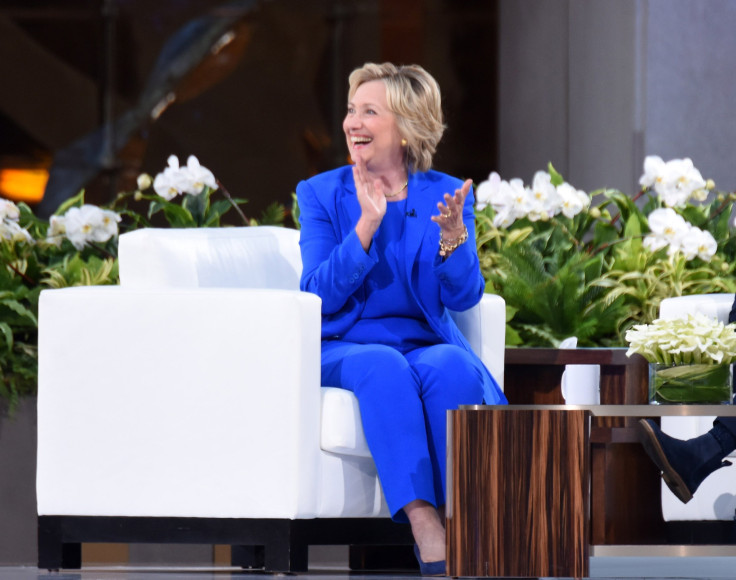With Clinton's Ratings Drop, Perhaps Pop Culture References Aren't The Best Campaign Play

The theme of “Saturday Night Live” seemingly has transferred to every night of the week as presidential contenders take to pop culture references and comedic relief this election season. Each press interview, TV appearance or social media post has potential to put the candidate at the forefront of voters’ minds — something that has become difficult in a cycle of more than a dozen participants and a celebrity on the roster.
Evidently an election is not just about number of TV appearances or savviness in the use of emoji. The latest Marist poll, released Sunday, had Clinton leading contender Bernie Sanders by only 3 percentage points in Iowa and Sanders overtaking Clinton in New Hampshire.
For the 2016 election, concern lies in whether or not it is worth the investment in resources and whether some of these moves actually are more detrimental to a candidate’s image.
For instance, former Hewlett-Packard CEO and Republican presidential candidate Carly Fiorina tweeted her support for the Iowa Hawkeyes in the Rose Bowl earlier this month.
Love my alma mater, but rooting for a Hawkeyes win today. #RoseBowl
— Carly Fiorina (@CarlyFiorina) January 1, 2016But instead of gaining support from the fans in Iowa, which holds the first-in-the-nation caucuses Feb. 1, her endorsement received criticism, especially after the Hawkeyes lost. Following the game, the hashtag #CarlyCurse began trending on Twitter, Politico reported.
Several of the candidates have participated on morning talk shows and late-night shows, such as Stephen Colbert’s on CBS. “With this crowded, crowded field for the GOP, these candidates will go on anything simply so people will begin to recognize who they are,” Robert Thompson, professor of pop culture at Syracuse University, told the Wall Street Journal.
Clinton has made these TV appearances a priority, with appearances on "Saturday Night Live" and the "Ellen Show," for example. She also has hired several digitally focused staffers to support her campaign. The team creates GIFs, maintains a Snapchat account and educates Clinton in millennial-speak.
That profile is in stark contrast to the robotic sense voters felt from the Democratic candidate in the 2008 election. “They’re one of us. They’re not in some kind of bubble,” Thompson said in the video from the Journal, released this week.
A future president and party leader must have and voice ideas as House Speaker Paul Ryan noted Sunday morning on “Face Of The Nation.” Crediting what he learned as a vice presidential nominee in 2012, Ryan said: “If you wait until late summer, end of summer, to then roll out what you believe in and what your agenda is, I think it’s too late.”
© Copyright IBTimes 2024. All rights reserved.





















